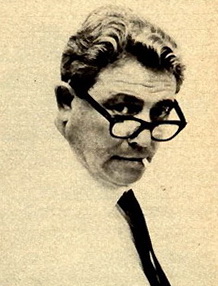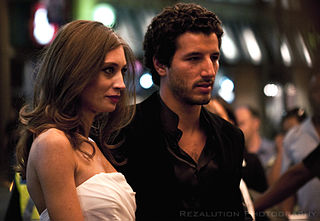
Francesco Guccini is an Italian singer-songwriter, considered one of the most important cantautori. During the five decades of his music career he has recorded 16 studio albums and collections, and 6 live albums. He is also a writer, having published autobiographic and noir novels, and a comics artist. Guccini also worked as actor, soundtrack composer, lexicographer and dialectologist.

Eduardo De Filippo, also known simply as Eduardo was an Italian actor, playwright, screenwriter, author and poet, best known for his Neapolitan works Filumena Marturano and Napoli Milionaria. Considered as one of the most important italian artists of 20th century was author of many theatrical dramas put on play and directed by himself first and later awarded and played outside Italy. For his artistic merits and contribution to the culture was nominee senatore a vita by Italian Presidente della Repubblica Sandro Pertini.

Matilde Serao was a Greek-born Italian journalist and novelist. She was the founder and editor of Il Mattino, and she also wrote several novels. She was nominated for the Nobel Prize in Literature in four different years.

Francesco de Sanctis was a leading Italian literary critic and scholar of Italian language and literature during the 19th century.

Giovanni Luigi "Gianni" Brera was an Italian sports journalist and novelist. This is a description by himself: "My real name is Giovanni Luigi Brera. I was born on 8 September 1919 in San Zenone Po in the province of Pavia, and grew up like a wild man among woods, river banks and still waters. [...] I am a Padan from the banks and flood plains, the bush and the sandbanks. I soon realized I was a legitimate son of the Po".
Francesco De Masi was an Italian conductor and film score composer.

Raffaele La Capria is an Italian novelist and screenwriter, known especially for the three novels which were collected as Tre romanzi di una giornata.
Francesco Maselli or Citto Maselli is an Italian film director and screenwriter. He has directed 38 films since 1949. His 1990 film Il segreto was entered into the 40th Berlin International Film Festival.
Gigi Savoia, also known as Luigi Savoia, is an Italian actor.
Carlo Francesco Pollarolo was an Italian composer, chiefly of operas. Born into a musical family, he became the cathedral organist of his home town of Brescia. In the 1680s he began composing operas for performance in nearby Venice. He wrote a total of 85 of them as well as 13 oratorios. His operatic style is noted for its development of arias accompanied by the orchestra and it shows some influence from the contemporary French opera of Jean-Baptiste Lully.

Francesco Scianna is an Italian actor.
Ernesto Mahieux is an Italian actor, sometimes credited under the name Ernesto Maiè.

Arrigo Petacco was an Italian writer, historian and journalist.

Francesco Lojacono or Lo Jacono (1838–1915) was an Italian painter, mainly of landscapes and seascapes.

Bertrando Spaventa was a leading Italian philosopher of the 19th century whose ideas had an important influence on the changes that took place during the unification of Italy and on philosophical thought in the 20th century.
Francesco Signore was an important Italian volcanologist. He began his scientific career as assistant at the "Istituto di Fisica Terrestre", Naples. He served his country during World War I. He was nominated assistant at the Vesuvius Observatory (1928). He taught volcanology at the faculty of science, University of Naples (1934–1956). He was secretary general of the International Association of Volcanology and Chemistry of the Earth's Interior (IAVECI) from 1936 until his death.
Ermanno Rea was an Italian novelist, essayist and journalist.

Saverio Baldacchini was an Italian politician, writer and poet.

Ottavio Serena was an Italian politician, judge, prefect and historian. He is well known in his hometown Altamura for his works about local history. In his numerous writings, he has shown remarkable critical spirit, especially in history subjects, such as the Altamuran Revolution (1799), and in many cases the conclusions he drew are still valid today. His contribution and the testimonies he collected allowed to shed light on some historical events (such as the killing of Giovanni Firrao and on legendary toponyms.
Francesco Di Giorno is an Italian football player. He plays for Modena on loan from Crotone.














